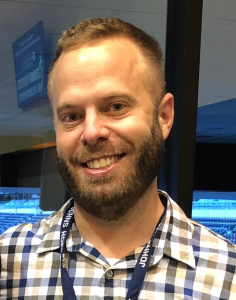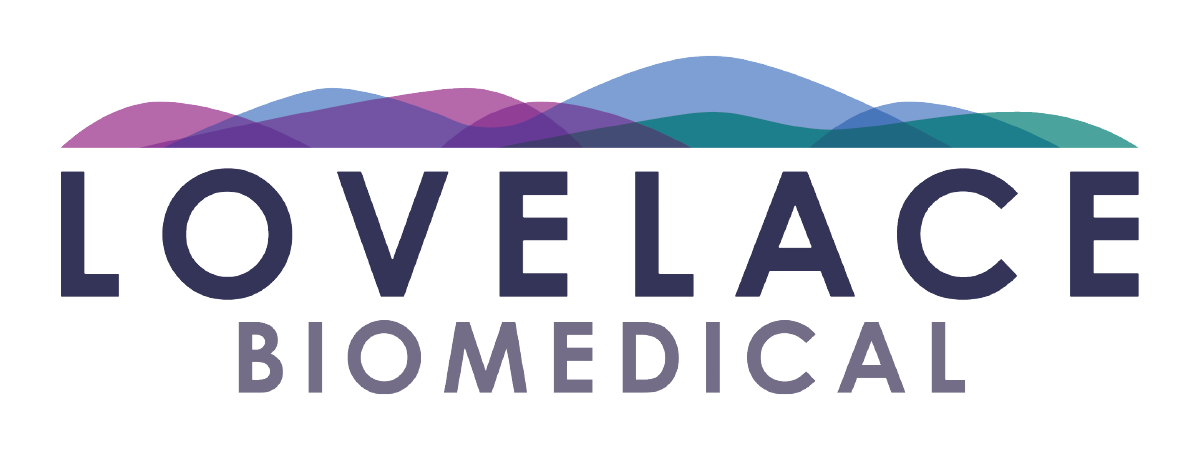
Veterinary Research Scientist
Today, we put the spotlight on Adam Werts. Adam recently joined Lovelace Biomedical as part of our veterinary research team. Adam gives us an insight to his life, his career, and what he’s up to since joining Lovelace Biomedical.
Bio:
I spent the first twenty-two years of my life in Michigan, including four years at Grand Valley State University where I completed a B.S. in Biology. In 2006 I moved to North Carolina for a PhD in Cell and Molecular Biology at the University of North Carolina at Chapel Hill. In the lab of Bob Goldstein, I studied how cell-cell communication leads to proper cell division orientation and cell fate determinate segregation during early development. After this PhD in basic science, I sought out training in translational science and medicine and enrolled in veterinary school at the North Carolina College of Veterinary Medicine. Upon completion of this program, I followed my passion for science and medicine to Baltimore, MD where I enrolled in a dual postdoctoral fellowship and residency in laboratory animal medicine at the Johns Hopkins School of Medicine. My residency gave me practical experience in clinical medicine, animal model development and federal regulation of a variety of species including mice, rats, swine, non-human primates, cats, dogs, other rodents and various more unusual species such as bats, frogs, zebrafish, and owls. I also carried out mentored research on necrotizing enterocolitis (NEC), a disease of the intestine of premature infants, in the lab of David Hackam, Pediatric Surgeon-in-Chief and Co Director of the Johns Hopkins Children’s Center. Immediately after my residency I sat for and passed the American College of Laboratory Animal Medicine boards exam and moved to Albuquerque where I have started my position as a study director, principle investigator, and veterinarian at Lovelace.
What inspires you?
As a child one of my favorite television shows was MacGyver, where this sort of adventurer and polymath could use simple items and his scientific knowledge to solve complex problems and get himself out of dangerous situations. As a veterinarian and scientist, I have developed a sort of MacGyver-approach to science and animal model development. I am excited to use this approach, connecting sometimes disparate groups of people, to help solve complex problems in human disease which fit in with Lovelace’s experience and expertise, and also pushing into areas of translational science and help establish new areas of expertise for Lovelace.
Describe how you arrived to this point in your professional career.
My career path has never really had a specific plan. For the past thirteen years I have been following my scientific and medical interests, adapting as I needed, and this has brought me to Lovelace.
What defines success in your work?
Success in research is difficult to define because there isn’t always a correlation between the hours and effort you put in, and the results that you have to show at the end of the day. I judge success as moving the field forward, which is often incremental, but hopefully at times your or efforts of your team can result in meteoric changes or breakthroughs in a particular field.
What are your ultimate goals while at Lovelace?
I hope to be an asset to Lovelace, taking the lead on some programs while assisting in smaller aspects of others, with the goal of helping the client move their science forward as ethically and efficiently as possible while following best scientific and animal welfare practices.
Most important ____ (accomplishment/discovery/breakthrough/etc.)
I was the first to show that necroptosis, a highly inflammatory form of programmed cell death, is activated in the intestinal epithelium of the ileum in premature infants that develop the often lethal gastrointestinal disease called necrotizing enterocolitis (NEC). This work highlighted how different forms of cell death can crosstalk to contribute to disease pathogenesis, and it identified a pathway that may be a therapeutic target for prevention and treatment of NEC.
What are your challenges?
I’ve been in academia for the past seventeen years, so navigating this transition into industry, product development, and defining the many roles that I can play at Lovelace will take some time to mature. However, I am ready for these challenges and I am excited to make an impact.
Anything interesting you want to note about yourself? Personal interests? (sports, food, etc?)
I grew up in rural Northern Michigan and many of my first hobbies and interests revolved around being outdoors -hiking, swimming, biking, etc. I’ve been in Baltimore, MD for the past four years, where seeking out these experiences was a bit more challenging. I’m excited to explore the mountains, biking trails, and nature that seem much more easily accessible from Albuquerque when compared to my most recent experiences in Baltimore.

